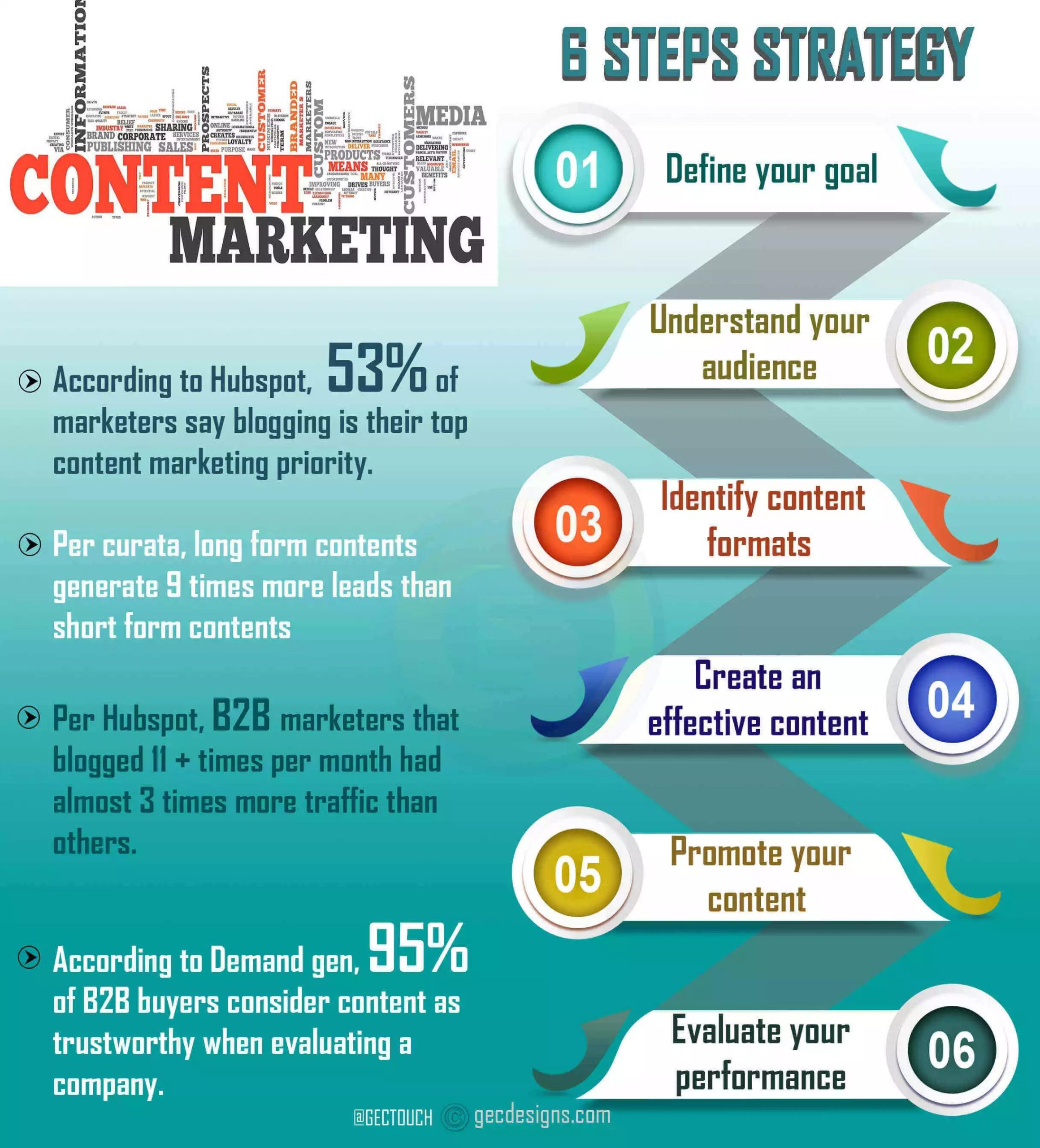In today’s competitive business landscape, startups face the dual challenge of establishing their brand while simultaneously striving for sustainable growth. As traditional marketing methods become less effective in capturing the attention of an increasingly discerning audience, innovative approaches are necessary to carve out a niche in the crowded marketplace. One such approach that has gained significant traction is content marketing. By employing strategic content initiatives, startups can not only engage potential customers but also build credibility, foster relationships, and ultimately drive conversions. This article delves into the critical content marketing strategies that can effectively propel startup growth, exploring how a well-executed content plan can transform a fledgling business into a formidable player in its industry. We will examine practical insights, case studies, and actionable tactics designed to harness the power of content, equipping startups with the tools they need to succeed in an ever-evolving digital world.
Table of Contents
- Understanding the Importance of Content Marketing for Startups
- Developing a Targeted Content Strategy That Resonates with Your Audience
- Utilizing Data Analytics to Optimize Content Performance and ROI
- Building an Engaging Brand Narrative to Foster Customer Loyalty and Trust
- Closing Remarks
Understanding the Importance of Content Marketing for Startups
In today’s digital landscape, content marketing serves as a critical lever for startups looking to establish their brand presence and connect with their audience. By creating valuable, relevant content, startups can not only attract potential customers but also build trust and credibility within their niche. This approach empowers startups to showcase their expertise and provide solutions to the pain points faced by their target audience. Furthermore, content marketing can significantly enhance SEO efforts, driving organic traffic and boosting visibility, which is vital for fledgling companies aiming for sustainable growth.
Implementing effective content marketing strategies involves a variety of tactics tailored to the needs and behaviors of the target market. Startups should consider the following approaches to optimize their content efforts:
- Leverage Social Media: Engage with your audience through platforms where they are most active.
- Create Valuable Resources: Offer eBooks, whitepapers, and guides that provide in-depth insights relevant to your industry.
- Utilize Blog Posts: Regularly publish informative articles that address industry trends and consumer questions.
- Implement Email Marketing: Use newsletters to nurture leads and keep your audience informed.
Developing a Targeted Content Strategy That Resonates with Your Audience
To truly connect with your audience, it’s crucial to understand their needs, preferences, and pain points. Begin by developing detailed buyer personas that represent your ideal customers. These personas should highlight demographic information, interests, and the challenges your audience faces. By conducting surveys, interviews, and analyzing market trends, you can gather valuable insights that will inform your content creation. Focus on addressing the specific issues that resonate with your target audience, positioning your startup as a trustworthy solution provider.
Furthermore, tailor your content formats and distribution channels based on where your audience consumes information. Consider utilizing a mix of the following content types to enhance engagement:
- Blog posts for in-depth insights
- Infographics to visually present data
- Videos for dynamic storytelling
- Podcasts that facilitate on-the-go listening
In addition, assess the performance of your content regularly through analytics. This will help you determine which topics resonate most and allow you to refine your strategy accordingly. Here’s a concise approach to tracking your content performance:
Performance Metric Action to Take Engagement Rate Enhance visuals and use interactive elements Traffic Sources Focus on the most effective channels Conversion Rate Refine CTAs and landing pages
Utilizing Data Analytics to Optimize Content Performance and ROI
In the dynamic landscape of content marketing, leveraging data analytics is crucial for startups looking to enhance their reach and effectiveness. By measuring key performance indicators (KPIs), startups can identify which content resonates most with their audience. Analytics tools provide insights such as:
- Traffic Sources: Understand where your audience is coming from to tailor your marketing efforts.
- User Engagement: Analyze time spent on pages and interaction rates to gauge content effectiveness.
- Conversion Rates: Track how well your content drives desired actions like sign-ups or purchases.
These insights enable startups to make data-driven decisions, optimizing content formats and distribution channels to maximize return on investment (ROI). For example, if video content generates higher engagement and conversion rates, investments in video production can be prioritized. Here’s a simple overview of potential content types and their estimated performance metrics:
| Content Type | Engagement Rate | Estimated ROI |
|---|---|---|
| Blog Posts | 60% | 150% |
| Infographics | 75% | 200% |
| Videos | 90% | 250% |
| Podcasts | 80% | 180% |
Building an Engaging Brand Narrative to Foster Customer Loyalty and Trust
Creating a compelling brand narrative involves weaving together your company’s values, mission, and unique selling propositions into a story that resonates with your audience. This narrative should be authentic, reflecting your brand’s voice and ethos. To achieve this, focus on these essential elements:
- Relatability: Share stories that connect emotionally with consumers, allowing them to see themselves in your brand.
- Transparency: Be honest about your business practices and values, building trust through openness.
- Consistency: Ensure that your narrative is consistently communicated across all platforms and marketing materials.
When customers feel connected to a brand through its narrative, they are more likely to remain loyal. To cultivate this relationship, consider incorporating customer testimonials and success stories into your content marketing strategy. These elements can enhance your brand’s credibility and foster a sense of community among your customers. Here’s a simple framework for showcasing these narratives:
| Customer Story | Key Message | Impact |
|---|---|---|
| Jane’s Eco-Friendly Journey | Empowerment through sustainability | Increased sales by 20% |
| Mark’s Productivity Breakthrough | Innovative solutions lead to success | Higher brand engagement rates |
By strategically highlighting these narratives within your content marketing, you foster an environment of trust and loyalty, encouraging customers to not only return but also advocate for your brand. This approach lays a strong foundation for long-term growth and customer retention.
Closing Remarks
leveraging effective content marketing strategies is not merely an option but a necessity for startups aiming to achieve sustainable growth in today’s competitive landscape. By creating valuable, engaging, and targeted content, startups can not only elevate their brand visibility but also foster trust and loyalty among their audience. As we have explored, a well-defined content marketing plan—rooted in a deep understanding of your target market and aligned with your overarching business goals—can serve as a powerful catalyst for driving customer acquisition and retention.
Ultimately, the commitment to continuously refine and adapt these strategies will be instrumental in navigating the complexities of market dynamics and consumer behavior. Startups that embrace content marketing as a core pillar of their growth strategy stand to gain a significant competitive edge, transforming challenges into opportunities for innovation and differentiation. As you embark on your content marketing journey, remember that consistency, quality, and authenticity are key to building lasting relationships and achieving the impact your startup deserves.






